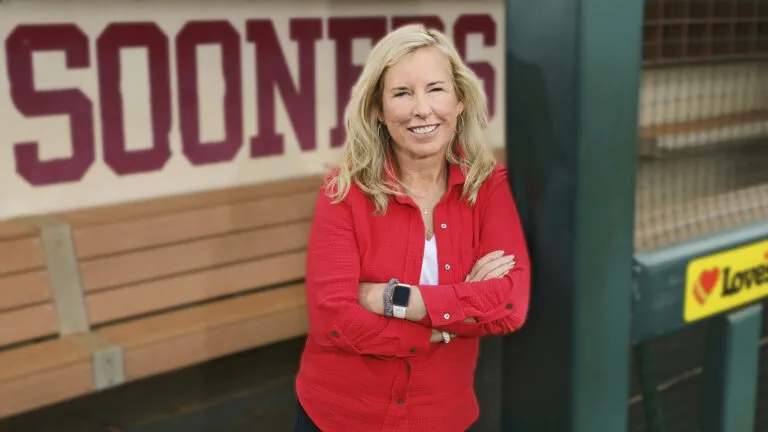Most of us move through life looking for something. For years my search was for a sense of belonging, truly belonging somewhere. I spent half a lifetime looking for a place where I could feel deeply at ease, accepted, part of a family, surrounded by people who cared.
I had begun to believe that no such place existed. Then I found one.

My father, Walter de Havilland, was a professor teaching at the Imperial University in Tokyo, where I was born. Mother always believed that the goats’ milk that is given to babies in Japan started me on my endless succession of ailments.
My parents’ marriage was not a happy one. When I was two-and-a-half, Mother, my sister and I left Japan and settled in Saratoga, California, where doctors assured Mother that the climate would be healthier.
It was true that my eczema got better, but just about every other conceivable illness followed.
My earliest memories are of tastes–castor oil and Scott’s Emulsion and the hatefulness of unsweetened licorice cough syrup–and of white-uniformed strangers bending over me with long, hurting needles.
I suppose it was no wonder that with such handicaps I found it hard to relate to other children. And indeed the life we led was different from other children’s carefree existences.
By now my mother had remarried. My stepfather was an investment counselor, but I’m sure he should have been a general.
The bedroom my sister and I shared, when I wasn’t quarantined with some infection, was modeled after a barracks: khaki spreads on iron bedsteads, khaki-painted furniture against dun-colored walls, military-style inspections morning and night.
At his insistence, each Sunday we wrote out the schedule for the week ahead in precise segments:
7:00-7:15 bathe and dress
7:15-7:45 breakfast
7:45-8:15 make beds; tidy room
8:15-8:30 walk to school
and so on through the long regimented day. My stepfather was a well-intentioned man, and I respected him, but he was unable to give the warmth, the open affection, the understanding touch that I yearned for.
And yet all the illness and isolation and regimentation had their compensations, for instead of real companions, I found my friends in books and in the dramatic sketches Mother taught my sister and me to act in when friends came to visit.
On days when I was unable to sit up in bed, I would weave long thrilling dramas in my head. Little did I think, at such lonely moments, that I was going through the perfect apprenticeship for an acting career.
But apparently it showed to those around me. One day a friend of Mother’s who had seen our little living-room dramas received a call from the actress May Robson. May was looking for a young girl to play the role of the ingenue in her next play.
“Joan de Havilland,” said Mother’s friend without hesitation. And so I found myself in the wonderful make-believe world of theater.
By now my sister was an established actress, so in order not to trade on her name I took our stepfather’s name, Fontaine. Acting was a strenuous career for a girl as sickly as I was, but I soon came to know why Dame Sybil Thorndike called it “Doctor Theater.”
No matter how I felt or how high my temperature, when the curtains parted, a burst of energy always flooded into me, and I went on, oblivious to everything but the part I was playing.
An increasingly successful movie career had many rewards, but it did not bring me the warmth and close relationships that I kept seeking, sometimes desperately.
Perhaps it was the lack of a warm father figure in my childhood that made my expectations of marriage so ridiculously high. My husband was to be everything I had longed for as a girl. All-loving, all-strong, all-wise, he would be the answer to every need.
And each time he fell short of those expectations the disillusionment was keener, the depression that followed more serious. Each time I felt as if I were a wanderer with no place to go, no place to belong.
It was during one of those bleak times in 1972 that I finally realized what I had been doing. I had been idolizing human beings, trying to make of them what flesh and blood can never be. Even if a man could be the father I dreamed of, the brother I never had, he could never be God.
Of course I wanted a center to my life, of course I wanted perfect faithfulness, perfect love—only I had been looking for those things in the wrong places.
I remember so well the day, sitting alone in my New York apartment, when that realization came to me. I remember because with it, quietly and clearly, came the answer I had been seeking for so long.
Not far away was a tranquil place of worship called the Church of the Heavenly Rest. I began to attend services there. A few months later I consulted the rector, Burton Thomas, and told him I needed to be baptized.
With just a few friends to stand with me, and Dr. Thomas’s wife, Hazel, as my godmother, I was baptized, and I knew that I had found the place where I belonged at last.
Baptism is an inrush of grace—and grace changes people. Have I been changed? I believe so. Where I was judgmental and sometimes too demanding, I now feel more sympathy for other people, more tolerance, more understanding.
My friends, who seem closer and dearer, tell me that I seem closer and dearer to them. I feel stronger in myself; I’m not looking so desperately for some other human being to lean on. I belong to a church and a church belongs to me, and I feel surrounded by love and joy.
Sometimes when a bird sings in Central Park and no one else stops to listen, I feel myself overwhelmed with wonder and gratitude to the Giver of such gifts.
And sometimes I wonder why it took me so long. Then I think of that marvelous parable of the workers in the vineyard (Matthew 20:1-16), and remember that in God’s sight there is no soon or late.
In that story each worker received the same reward no matter when he came. For me that reward was the gift of knowing I belong.
For more inspiring stories, subscribe to Guideposts magazine.





